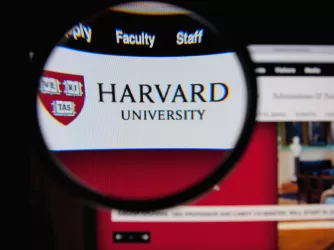Table of Contents
The Chill Is Nothing New

This article appeared in The Chronicle of Higher Education on Sept. 9, 2005.
There is a chill on campus, but that’s nothing new. For decades, campus speech has been chilled by speech codes and other attempts to prevent expression that might offend. Some would like to imagine that the excesses of “political correctness” are ancient history, but repression in the name of tolerance hasn’t gone anywhere. Oppressive speech codes are not only still around—they have actually multiplied, even after numerous court decisions declared them unconstitutional.
Within the past year, college students have been punished for such things as expressing a religious objection to homosexuality and arguing that corporal punishment may be acceptable. Students in Illinois were told they could not hold a protest mocking affirmative action. Christian students in Florida were banned from showing The Passion of the Christ. A student in New Hampshire was expelled from the dorms after posting a flier that joked that female students could lose weight by taking the stairs. Those are just a few examples. The riskiest speech on campus is still religious or conservative expression or satire of the university’s values.
Another longstanding source of the campus chill is as old as college itself: the desire of administrators to avoid public criticism. Instances from the past few years are, again, easy to find. Several institutions, including Harvard Business School, have reprimanded student journalists for being critical of the administration. A University of Oklahoma faculty member was marginalized and relegated to a basement office, apparently for creating an “uncollegial environment” that happened to include blowing the whistle on university impropriety. At Shaw University, a professor was summarily fired for criticizing the administration.
The growing bureaucratization of colleges also contributes to the chill. To avoid liability, campus policies banish speech to tiny “free-speech zones” and regulate pamphleteering, romantic relationships, and countless other aspects of academic life. Unfortunately, recent legal decisions in Massachusetts, California, and Illinois have confused what were once clearly distinct student rights and administrative duties, threatening to make matters worse.
What is relatively new, however, is the public backlash against the academy. That has been provoked by comments like those of a University of New Mexico scholar who quipped on September 11, 2001, that “anyone who can bomb the Pentagon has my vote”; of a Saint Xavier University faculty member who condemned an Air Force cadet as a “disgrace”; and of a professor at Columbia University who called for “a million Mogadishus” in Iraq. And who hasn’t heard of Ward Churchill, of the University of Colorado, who likened the victims of September 11 to Adolph Eichmann?
The University of Colorado was absolutely correct, however, when it concluded that speech like Churchill’s is fully protected. As student-rights advocates have argued for decades, free speech means nothing if it does not include the provocative, unpopular, or even offensive.
Unlike other threats to campus candor, those cases have truly caught the academy’s attention—perhaps because faculty members now see their free-speech rights in question. While decrying increased public scrutiny, higher education has been hesitant to accept that it might share the blame for the erosion in public confidence. Those inside the academy may see their institutions as paragons of enlightenment, but the outside world increasingly views them as bloated corporations with frightening power over their children’s future. Now that the cost of top colleges has skyrocketed to more than $40,000 a year—close to what the median American household makes annually—the very least students should be able to expect is that their basic rights be respected.
There are certainly new and potentially serious threats to free speech presented by the Patriot Act, intellectual-property law, and dangerously vague legislative proposals. But colleges could do much to restore their credibility and prevent greater “outside interference” by confronting the free-speech problems that have plagued them for years. The academy would do well to remember: The first step to recovery is admitting that you have a problem.
- Press Freedom
- Faculty Rights
- University of Colorado Boulder
- University of Oklahoma
- Shaw University
- Saint Xavier University
- Northeastern Illinois University
- University of New Mexico
- Indian River State College
- Occidental College
- Northeastern Illinois University: Suppression of Affirmative Action Bake Sale
- University of Colorado at Boulder: Investigation of Professor for Controversial Essay
- University of Oklahoma: Plot to Punish Professor for Political Beliefs, Whistleblowing
- Indian River Community College: Ban on ‘The Passion of the Christ’ and Repression of Free Speech
- University of New Hampshire: Eviction of Student for Posting Flier
- Occidental College: Use of Harassment Charges to Suppress Protected Speech
- Shaw University: Severe Punishment for Criticizing Administration
- Saint Xavier University: Punishment of Professor for Anti-Military Comments
- University of New Mexico: Censorship of Professor After Joking About Pentagon Attack
Recent Articles
FIRE’s award-winning Newsdesk covers the free speech news you need to stay informed.

Revoking Harvard’s tax-exempt status will threaten all nonprofits

Grandpa’s advice for the new wave of American censors

FIRE POLL: Only 1/4 of Americans support deporting foreigners for pro-Palestinian views
